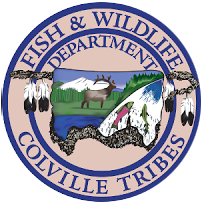Why BPA Provides Funds for the Colville Confederated Tribes to Acquire Land for Habitat Protection and Improvement
The Bonneville Power Administration (BPA) is a branch of the U.S. Department of Energy that markets and transmits power produced by federal hydroelectric dams in the Columbia River Basin. Under the Pacific Northwest Electric Power Planning and Conservation Act, BPA has legal obligations to protect, mitigate, and enhance fish and wildlife, including related spawning grounds and habitat, affected by the development and operation of hydroelectric projects that compose the Federal Columbia River Power System (FCRPS).
The Endangered Species Act (ESA) places additional responsibilities on BPA to avoid taking actions that adversely affect the survival and recovery of ESA-listed species. These species include ESA-Threatened Upper Columbia Summer Steelhead in the Okanogan subbasin, which pass – and are impacted by -- four lower Columbia FCRPS dams during their migrations to and from the Pacific Ocean. BPA’s ESA-related responsibilities for Upper Columbia Summer Steelhead were defined most recently in the 2014 FCRPS Supplemental Biological Opinion (BiOp), which includes alternatives to protect and improve steelhead habitat in the Okanogan River and its tributaries.
To help satisfy these obligations, BPA signed the Columbia Basin Fish Accords with The Confederated Tribes of the Colville Reservation (or Confederated Colville Tribes, CCT, in 2008) and several other tribal and state partners. The Accords guarantee a defined amount of funding for ten years to implement a portfolio of projects, including some to restore fish habitat, to improve migratory passage into tributary streams, to acquire water in stream, and to purchase lands for conservation and habitat restoration.
Accord partners have considerable discretion within the terms of their respective Accord agreements over how best to implement their projects, including which properties to acquire. However, properties may be obtained only from willing sellers. To-date, CCT Accord funds from BPA have been used to acquire 28 properties in Okanogan County.
Each property purchased with BPA funds must pass a due-diligence process that can take over a year. It involves, for example, inspections for environmental contaminants, appraisals that meet federal “yellow book” standards, compliance with the Uniform Relocation Act and other federal statutes, public notice in local media, letters to neighboring landowners, and preparation of draft land management plans by the new owners. The process typically culminates with public review of the draft land management plans, which is now underway for the first set of CCT Accord acquisitions.


